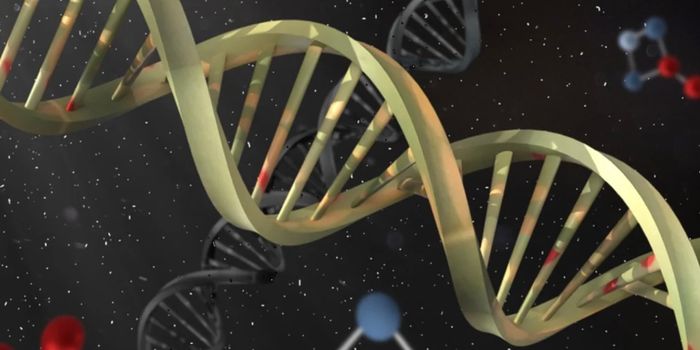Membrane-less Organelle Found to Play a Role in Preventing Cancer
In recent years, scientists have found that a phenomenon called phase separation plays a critical role in the functions of cells. Often compared to oil separating from water, it’s a way for cells to concentrate molecules and materials in particular areas without separating them from other parts of the cell with a membrane. Now scientists have discovered that one of these types of droplets aids in the sorting of genetic material while cells divide, which is crucial for the prevention of cancer. The work, by researchers at the University of Virginia (UVA) School of Medicine, has been reported in Nature Cell Biology.
The cell cycle is animated in the video.
The scientists found that problems with this membrane-less organelle arise in a type of breast cancer tumor. When cells divide, it’s critical for two complete copies of the genome to reach the two new daughter cells. There were many problems with the distribution of chromosomes in these breast tumor cells. An analysis of the tumor cells that reveals this pathology can provide critical insight into the proper therapy to apply to the disease, the researchers have found. This assessment could spare forty percent of breast cancer patients from receiving ineffective therapeutics.
"Some percentage of women get chemotherapy drugs for breast cancer that are not very effective. They are poisoned, in pain, and their hair falls out, so if it isn't curing their disease, then that's tragic," noted researcher P. Todd Stukenberg, Ph.D., of UVA's Department of Biochemistry and Molecular Genetics and the UVA Cancer Center. "One of our goals is to develop new tests to determine whether a patient will respond to a chemotherapeutic treatment, so they can find an effective treatment right away."
Stukenberg’s team was able to reveal this organelle even though it only appears when chromosomes are being sorted; once its work is complete it disappears. It resembles a liquid droplet condensing inside of another liquid. "That was the big wow moment when I saw that on the microscope," he said.
"What's exciting is that cells have this new organelle and certain things will be recruited into it and other things will be excluded," Stukenberg added. "The cells enrich things inside the droplet and, all of a sudden, new biochemical reactions appear only in that location. It's amazing."
The video above discusses new methods for studying phase separation in cells.
While oil and water separation is often used to illustrate the concept of these phase-separating organelles, the reality is more complicated. "It's more of a gel, where cellular components can still go in and out but it contains binding sites that concentrate a small set of the cells' contents," Stukenberg explained. "Our data suggests this concentration of proteins is really important. I can get complex biochemical reactions to occur inside a droplet that I've been failing to reconstitute in a test tube for years. This is the secret sauce I've been missing."
This is the first time that researchers have found that a membrane-less organelle is involved in chromosome segregation during cell division. Stukenberg suggested that these droplets play a role in other important processes that we aren’t yet aware of.
"I think this is a general paradigm," he said. "Cells are using these non-membranous organelles to regulate much of their work."
In this work, the researchers found that the organelle aids in the repair of microtubules, which pull chromosomes apart during cell division. In cancer, the repair goes awry, leading to even more problems with the resulting cells, causing the cancer to get worse. Stukenberg’s team has engineered a way to assess the level of chromosome sorting errors.
"We have a way to identify the tumors where the cells are missegregating chromosomes at a higher rate," he said. "My hope is to identify the patients where treatments such as paclitaxel are going to the most effective."
He now plans to see how this process impacts colorectal cancer.
Sources: AAAS/Eurekalert! via University of Virginia Health System, Nature Cell Biology








